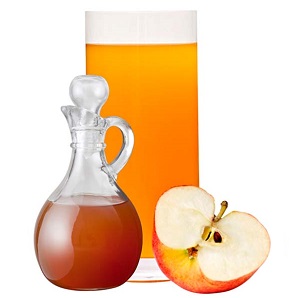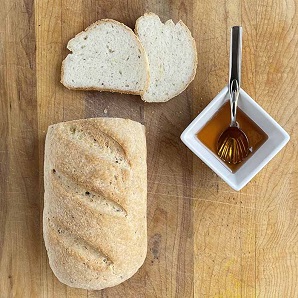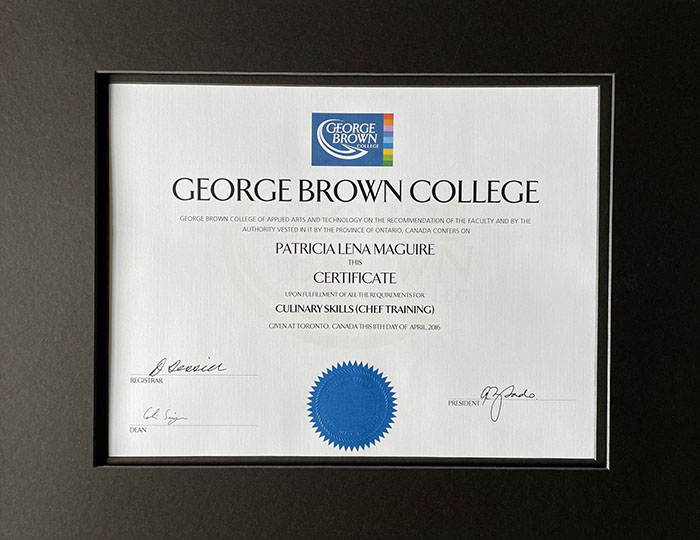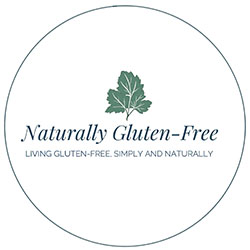- Home
- Living Gluten Free
- Gluten Free Forums and Blogs
Why You Shouldn't Join
Gluten Free Forums or Read Blogs
If you're like me, you read gluten free forums because you’re searching,
I
know you are. You’re lost,
overwhelmed. You’re looking for
some light, some reassurance. Is this
snack I’m about to eat safe? Is this
cereal my child wants so badly going to make them sick? Yes, I can read the label, but can I trust
it? Can I trust myself? Who can I ask, just to be sure?
Pin for Later
So you do what we all do in this day and age, you turn to the internet. You do your “research”.
Problem is, anyone can write a gluten free forum post or a blog and do so with such authority that they must surely know what they are talking about.
But do they?
And the deeper you go, the more contradictions you find. One site tells you the product you’re holding to your lips is gluten free, another says it’s not. One forum member tells you that you can never eat in a restaurant again, it’s too risky, other’s share their favourite new finds and menu items. What to do?
The truth is, there is so much misinformation on the internet that it’s hard to know what to believe, but you already knew that. I read a gluten free forum post the other day where someone said that mayonnaise has gluten (pure real mayo doesn’t), they were told this by a server in a restaurant. Someone else said that gluten is absorbed through the skin (it isn’t) but when pressed for a source couldn’t provide one. So how do you separate the wheat from the chafe?
About Gluten Free Forums
Gluten free forums can be the ultimate cesspool of misinformation. They can also be a great source of support, guidance and lifestyle tips. So should you join a forum, or several forums?
Only if you treat them as what they are, a community of humans like you who are trying to navigate this very confusing world of celiac disease. Some will be very well informed, and others will share their wives’ tales and secondhand stories as though they were the God’s honest truth. So, if you decide to wade into the world of forums, keeping these few tips in mind may help you to navigate the craziness and keep your sanity
Look for mediated gluten free forums
The best gluten free forums are the ones hosted by reputable sources like national celiac associations. They are mediated by knowledgeable staff who do their very best to weed out the rubbish and correct any misstatements. They can’t catch everything of course so you still need to keep your Spidey senses sharp.
Watch for tone
Most of these mediated forums have a “positive, supportive environment” policy and will state that they don’t tolerate abusive or mean language. This is a good thing. If you read through the posts and the atmosphere seems to be generally friendly and tolerant, especially of new people who are asking very basic questions, then you may have found a good forum. If people are insulting or berating others for perceived bad choices or “stupid” questions then run, and don’t look back.
It is what it is, and isn’t what it isn’t
Forums are a great place to go for support and to share experiences. Reading about someone’s bad experience with a relative who “just doesn’t get it” or a schoolteacher who refuses to get on board can help you to feel like you’re not alone in all of this. Misery does love company after all.
I had an experience a few months ago where I accidentally glutened myself. I should have known better, I’ve been doing this a long time, but I misread a label. I wrote about it in the CCA (Canadian Celiac Association) forum exactly like that, “I should have known better, I’ve been doing this a long time”. The positive support from people I’ve never met was amazing. While I lay there in bed with a warm bean bag on my stomach, I got to read all the “feel better soon” with little care emoji’s and the “wow I would never have looked for a ‘may contain’ statement there” comments that truly made me feel better and a little bit less like the idiot I was berating myself for being.
Forums are also good places for lifestyle tips, so long as you remember that you are talking to mortals like you and at the end of the day, you’ll need to take all of the opinions into account and make your own decision. Ask a question like “do I need to replace my pots and pans?” and you’ll get answers ranging from “I threw away everything in my kitchen and started over” or “I keep separate pots and dishes for myself and the rest of the family” to “we all use the same stuff and throw it all in the dishwasher”. But if you read through it all with a bit of humour, understanding and a critical eye you may find some useful tips that will work for you and your family.
You can also get some great recipes and baking tips on forums. There are people on there who are genuinely great cooks and experienced bakers and have done all the experimenting, so you don’t have to. They will share which gluten free flour they prefer for what purpose and how they converted their grandmother’s recipes to gluten free. You can turn to blogs and the popular recipe sites for gluten free recipes of course but it can be hard to know which ones are best. In forums people are very generous with their advice and opinions.
Forums are not:
The place to go for medical advice or hard facts about celiac disease. As you travel this path, you’ll need to read a lot. I recommend going to true experts if you’re starting out and looking for a base of knowledge. Look for books written by doctors, or if not by doctors, then authors who are published and have cited their sources. I highly recommend “Mayo Clinic, Going Gluten Free” by Joseph A Murray M.D. Go here for my review of this book. Be aware though that some doctors go down the alternative medicine path, which may be fine, but the science can get a little murky. Tread cautiously.
Another good source for reliable information is national Celiac Associations. As a Canadian I rely on and often recommend the Canadian Celiac Association. They are a great source for what is currently known in the scientific community, they give clear guidelines around what is and is not safe for celiac consumption and how to read and interpret food labels in Canada.
Look for the celiac association in your country. They will be a wealth of information that is relevant to you where you live. As a suggestion, after you read the information from your own country you may want to check out celiac associations from other places; just to see the similarities and differences. A lot is known about celiac disease, and there is still a lot to learn. Some of the variances you’ll see across sources reflect the grey areas and different interpretations of the science.
A Source for Resources
Although forums are not a great source for facts, they can be a great source for resources. People, if asked, will happily share what books they’ve read, link to articles or share the advice they’ve gotten from their doctors, which you may be surprised to find, varies a fair bit. As always, use your own common sense, and when reading a linked article consider the expertise of the author and if they cite their sources.
About Blogs
Anyone with a computer and a little time on their hands can write a blog, that doesn’t make them an expert. Blogs can be great sources of information, but like forums, they can also be great sources of misinformation. Here are a few things to watch for:
Curators vs Experts
Most people who write blogs on the internet, myself included, are not experts, but curators of information they’ve found elsewhere. To determine the quality of the blog you can look for two things: citations, and clarity about what the blogger is putting forward as fact versus simply sharing personal experience.
Check our their “About” page to get some understanding of the person’s background. For example, here at naturallygluten-free.com, I’ve been clear about the fact that I’m not a medical expert. I have a culinary background from which I base my advice on cooking, but for medical and lifestyle advice I rely on experts whom I cite, or my own personal experience and I try to be clear about the difference.
There are cases where my experience differs from what the experts say, and these are the places where I like to dig a bit. Such as gluten free alcohol, or skin care. In these cases, I try to be clear about what the science says and what I’ve experienced, and what I’ve been able to find out about the source of the discrepancy. I think these articles may be the most helpful as they reveal the gaps in our current knowledge and can help others feel like they’re not crazy, or a least not alone in their insanity.
Pinocchio’s Nose
I don’t think bloggers for the most part lie, but some do perpetuate misinformation. This is the result of lazy research.
When writing about a particular topic, a blogger will do some research. A good blogger will source books or articles written by actual experts and cite those sources. Some however will use other bloggers as their sources. The problem with this is that’s how misinformation grows. If someone, even a thorough, well meaning blogger writes something that is maybe a misinterpretation of the facts, and someone else picks that up and puts their own spin on it, and someone else does the same thing and so on, a simple misinterpretation that is easily fixed can get passed on and grow like Pinocchio’s nose until it’s accepted by many as fact. That can be hard to undo.
The best gluten free blogs cites sources and are transparent about where their information comes from. I may quote other bloggers or reference things others have told me, but I try to be clear about what is fact and what is hearsay so you can make your own decisions.
What Should You Do?
Should you join forums or read blogs?
My suggestion is yes, but with your eyes open. Understand these for what they are, that is supplements to true medical advice from your doctor and the real experts.
When I started naturallygluten-free.com it was because the early days of my celiac journey were difficult. There was not much information available and much of what was out there was unclear and contradictory. I wanted to do some of the research for you to save you some time and pain. This is what blogs and forums can do.
Your doctor can diagnose you and can tell you that you need to “go gluten free” but he or she may not be able to get into the nitty gritty of how to manage in a household where others are not gluten free, or what to do when you travel, or how to deal with your sister-in-law who insists “just have a taste, it won’t hurt you”.
Those who have gone ahead can place the signposts and warn of the potholes. That’s what your fellow humans are here for and I hope that’s what I provide for you.
If you're interested in joining our Naturally Gluten-Frees forum / Facebook group go here. We're just getting off the ground so it's a great opportunity to share with and learn from a small intimate group
Safe journey from a fellow traveler.
Home > Gluten-Free Lifestyle > Forums and Blogs














